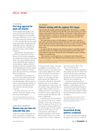 1 citations,
January 2024 in “Nature communications”
1 citations,
January 2024 in “Nature communications” Activating TLR5 in the gut can extend lifespan and improve health in aged mice.
 6 citations,
July 2013 in “Experimental and Therapeutic Medicine”
6 citations,
July 2013 in “Experimental and Therapeutic Medicine” Ginsenoside Rg1 protects mouse skin from UVB damage and helps control inflammation.
 August 2024 in “Frontiers in Pharmacology”
August 2024 in “Frontiers in Pharmacology” Antibody treatments show promise for hair loss but need more research.
 62 citations,
June 2015 in “The Journal of Dermatology”
62 citations,
June 2015 in “The Journal of Dermatology” People with alopecia areata have more Th17 cells and fewer Treg cells, which may be key to the condition's development.
 September 2018 in “Fertility and Sterility”
September 2018 in “Fertility and Sterility” High levels of testosterone and anti-Müllerian hormone before pregnancy are linked to a higher risk of newborns needing intensive care.

Dupilumab helped improve skin and prevent new lesions in a child with a rare immune disorder and severe eczema.
 June 2022 in “Frontiers in Immunology”
June 2022 in “Frontiers in Immunology” Tofacitinib regrew hair in a man with total hair loss but raised cytokine levels, needing more research on possible side effects.

The new hydrogel helps heal burn wounds better than current options by reducing bacteria and inflammation.
 8 citations,
July 2022 in “International Journal of Molecular Sciences”
8 citations,
July 2022 in “International Journal of Molecular Sciences” Skin cells release substances important for healing and fighting infection, and understanding these could improve skin disorder treatments.
 10 citations,
May 2021 in “Stem Cell Research & Therapy”
10 citations,
May 2021 in “Stem Cell Research & Therapy” Bone marrow-derived stem cells improved healing and reduced scarring in second-degree burns in rats.
1 citations,
August 2023 in “Biomolecules” Certain immune-related proteins are higher in people with alopecia and their healthy relatives, hinting at a genetic link.
 16 citations,
November 2005 in “Journal of Investigative Dermatology Symposium Proceedings”
16 citations,
November 2005 in “Journal of Investigative Dermatology Symposium Proceedings” Blocking interferon-gamma helps prevent and treat hair loss in Alopecia Areata.
 1 citations,
January 2024 in “Journal of the American Academy of Dermatology”
1 citations,
January 2024 in “Journal of the American Academy of Dermatology” COVID-19 vaccines have been linked to an increase in hair loss conditions.
 October 2010 in “Journal of Men's Health”
October 2010 in “Journal of Men's Health” Larger prostate size in older men may be linked to poorer semen quality and fertility issues.
 16 citations,
January 2016 in “Journal of Investigative Dermatology”
16 citations,
January 2016 in “Journal of Investigative Dermatology” Mice without the IL-6 gene had more hair growth after injury due to higher activity of a related protein, Stat3.
 July 2017 in “Nursing2023”
July 2017 in “Nursing2023” Actemra is approved for a specific artery condition, HIV treatment adherence has improved, women may pay more for a hair loss product, and incorrect dosing of blood thinners can be risky.
December 2020 in “The journal of investigative dermatology/Journal of investigative dermatology” Papulopustular rosacea is an inflammatory skin condition treatable with lifestyle changes and medications.
 18 citations,
December 1996 in “Seminars in Cutaneous Medicine and Surgery”
18 citations,
December 1996 in “Seminars in Cutaneous Medicine and Surgery” Chemotherapy and cytokine therapy can cause various skin reactions, including hair loss and hypersensitivity.
 3 citations,
January 2023 in “PloS one”
3 citations,
January 2023 in “PloS one” Implanting hair-follicle stem cells in mice brains helped repair brain bleeding and reduced brain inflammation.
 89 citations,
October 1996 in “Dermatologic Clinics”
89 citations,
October 1996 in “Dermatologic Clinics” Alopecia areata is likely caused by a combination of genetic factors and immune system dysfunction, and may represent different diseases with various causes.
21 citations,
December 2005 in “The journal of investigative dermatology/Journal of investigative dermatology” T-cells in alopecia areata scalp show abnormal regulation, leading to less inflammation.
 19 citations,
October 1994 in “Tumori Journal”
19 citations,
October 1994 in “Tumori Journal” As of 1994, treatments for liver cancer had not significantly improved patient survival.
 22 citations,
June 2018 in “Journal of Neuroinflammation”
22 citations,
June 2018 in “Journal of Neuroinflammation” Procyanidins from grape seeds reduce nerve pain by blocking specific proteins and inflammation.
 2 citations,
August 2022 in “Korean journal of medicinal crop science/Han-gug yagyong jagmul hag-hoeji”
2 citations,
August 2022 in “Korean journal of medicinal crop science/Han-gug yagyong jagmul hag-hoeji” BLH308, made from persimmon leaf, green tea, and sophora fruit, may help reduce hair loss by fighting oxidative stress and inflammation.
 4 citations,
January 2019 in “Annals of Dermatology”
4 citations,
January 2019 in “Annals of Dermatology” RE-ORGA, a Korean herb extract, may help prevent hair loss.
 3 citations,
March 2022 in “Annals of Medicine”
3 citations,
March 2022 in “Annals of Medicine” Hair shedding after COVID-19 is more linked to the disease's severity and inflammation rather than hormones, with women at higher risk.
20 citations,
November 2017 in “JAAD case reports” Ustekinumab significantly improved psoriasis, vitiligo, and alopecia areata in a patient.
 4 citations,
April 2023 in “Autoimmunity reviews”
4 citations,
April 2023 in “Autoimmunity reviews” High levels of IL6 and CRP, and low levels of vitamin D, might be indicators of alopecia areata.
13 citations,
September 2022 in “Biomolecules” The research confirms that Hidradenitis Suppurativa is characterized by increased inflammation, disrupted skin cell organization, and abnormal metabolic processes.
 12 citations,
March 2019 in “Journal of Cosmetic Dermatology”
12 citations,
March 2019 in “Journal of Cosmetic Dermatology” PRP injections improve hair thickness and density in hair loss, but more research needed.

























